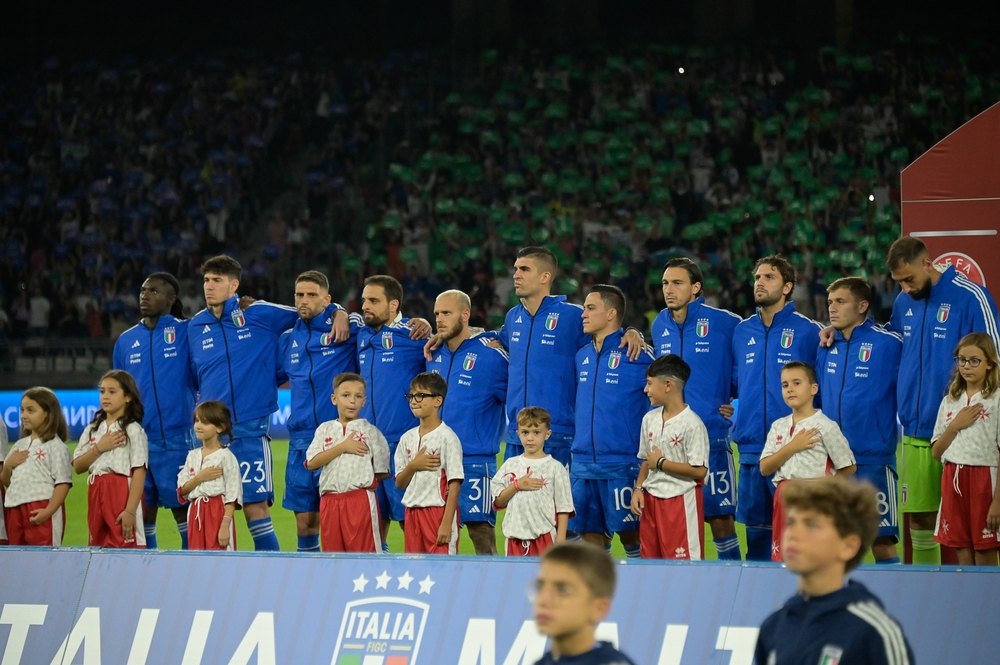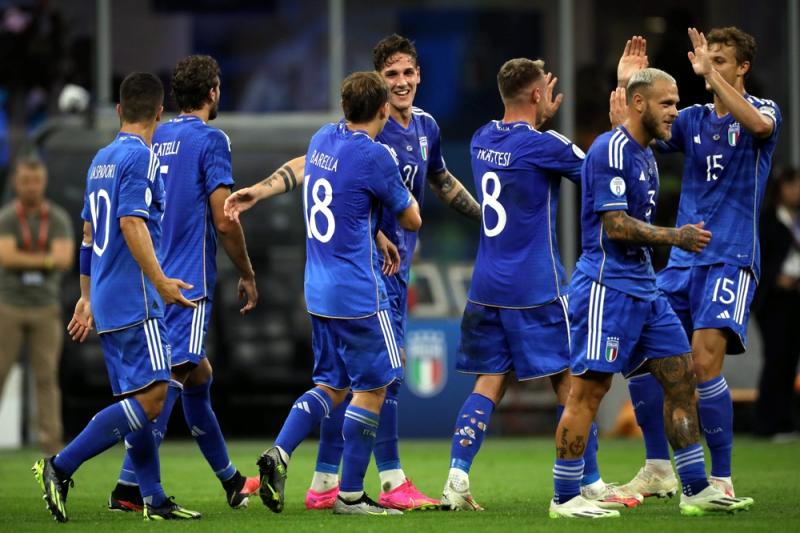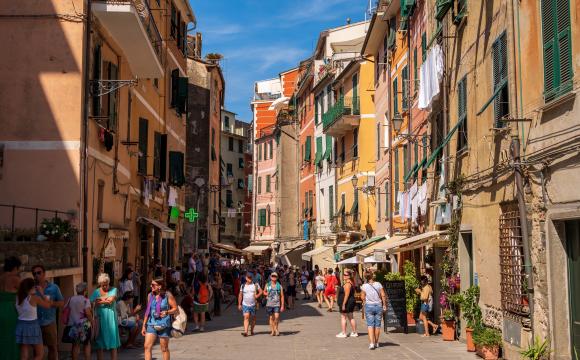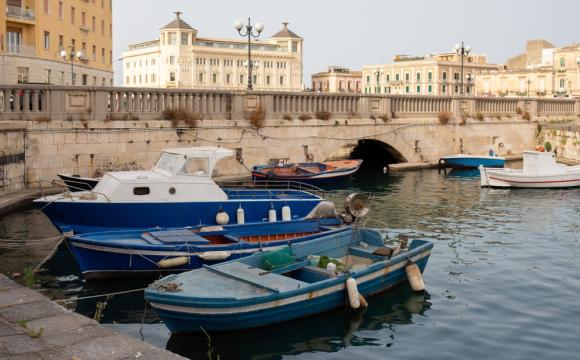In October of last year, after featuring in a 4-0 victory against Malta, then-20-year-old Destiny Udogie described making his first appearance for Italy’s national soccer team as a “dream come true.” A professional soccer player viewing such an experience as a career highlight hardly seems remarkable. But Udogie’s debut was tinged with extra significance because, as a young man of Nigerian descent, he’d become one of a small handful of Black players to appear for the Azzurri over the last couple of decades.
Udogie accomplished his milestone almost a decade and a half after the international debut of perhaps the most well-known Black Italian soccer player, Mario Balotelli. Although Balotelli wasn’t the first non-white player to appear for the Italian national team, he became a trailblazer as the first Black athlete to feature on a regular basis for the Azzurri. Balotelli, now 33, went on to play 36 times for Italy, making his final appearance in 2018, and had a career that in many ways epitomized the tensions at the heart of Italy’s emerging multiethnic identity. As Italy prepares to defend its title at this summer’s European Championships, the moment is ripe to examine why the Azzurri’s demographics don’t neatly line up with those of the country at large.
Italy (and the Azzurri) after Balotelli
In the 14 years since Balotelli’s first international appearance, Italy has continued its evolution into a genuinely multicultural country. According to the most recent demographic data from ISTAT, foreign citizens now make up around 9% of the country’s population, and the number of foreign-born residents living in Italy is about five times higher than it was two decades ago. One consequence of Italy’s transformation has been the creation of a cohort of young, Italian-born, second-generation migrants like Udogie. Despite the significant size of this group, it is relatively rare for ethnic minority soccer players to appear for the national team, especially in comparison to similarly sized European countries such as England and France.
On one hand, the breakthrough of Balotelli — who was born in Palermo to Ghanaian parents and later adopted by a family in Lombardy — highlighted a degree of inclusivity and meritocracy in Italian society. Balotelli showed skeptics it was possible for the son of African migrants to represent Italy at the highest level in the country’s most followed sport. And yet, the seemingly endless racism that Balotelli suffered, both while playing for the Azzurri and during a club career that included stints at Internazionale and AC Milan, was a reminder of the difficulties that ethnic minorities face in a society that isn’t always open to change.
The role of Italy’s citizenship system

Perhaps the most obvious explanation for the lack of ethnic and racial diversity in the Italy national soccer team is the country’s citizenship rules. Unlike in Britain or France, where there are routes to citizenship for native-born children regardless of their parents’ nationality status, people born in Italy who don’t have an Italian parent must wait until they are 18 years old to apply for citizenship. In addition to presenting a barrier to integration for second-generation migrants, this means that many potential Azzurri are excluded from the national team’s youth ranks. This is exactly what happened to Balotelli, who despite his prodigious talent, and despite being born, bred, and educated in Italy, was unable to play for the Under 15 or Under 17 Azzurri squads (he was finally granted Italian citizenship shortly after turning 18).
The difficulties Balotelli and others experience contrast with the relative ease with which foreign-born descendants of Italians can gain citizenship — a popular (and increasingly commodifiable) aspiration which has been written about in this publication. Italian citizenship rules are based on the jus sanguinis (“right of blood”) model of nationality law, meaning citizenship can be granted to those who can sufficiently prove they are the descendant of an Italian citizen who was alive during or at any point after the formal unification of Italy in March 1861. Thanks to this law, the list of oriundi, soccer players born outside of Italy (usually in South American countries) who have represented the Azzurri through their “right of blood,” is long.
Historically, jus sanguinis has been adopted by countries with high net emigration to help bolster their population and labor supply. But now that Italy is — and has been for some time — a net receiver of migrants, a system that grants citizenship to those with distant Italian ancestry but denies it to youths who were born and raised in Italy seems outdated and in need of reform.
A question of education?

Nadeesha Uyangoda, 31, is a Milan-based author who has just finished writing a book about racism in the Italian sports world. In an interview over Zoom, she told me that while a change in the law would help more players like Udogie pursue successful careers, the issue of citizenship is far from the only problem. Uyangoda, who was born in Sri Lanka but has lived in Italy since she was six years old, points to the lack of ethnic minority representation in sports journalism and in the sporting institutions themselves, which allows the systemic prejudice experienced by Balotelli and others to prosper.
“I would say that at a mature level sport could help move past prejudice, but at the same time, when institutions keep being all-white and racist and judgmental about having Black people in certain roles, [a change in citizenship law] is not going to make a big difference,” Uyangoda told me.
In an industry in which the issue of racism is frequently downplayed or ignored entirely, the key, Uyangoda argues, is education. Many of the sport’s authorities “don’t think that racism is something that enters the field or that it has an impact […] Some people in this industry don’t even know that racism is a thing, they don’t even know how to describe racism or how to define it. So in order to address the issue, we should know what we’re dealing with.”
Italy may well defend its title at Euro 2024. But without reforms such as a more egalitarian citizenship system, better representation in sporting institutions, and greater education on how racism affects players, it will take time for the Azzurri squad to accurately reflect the Italy of today.













